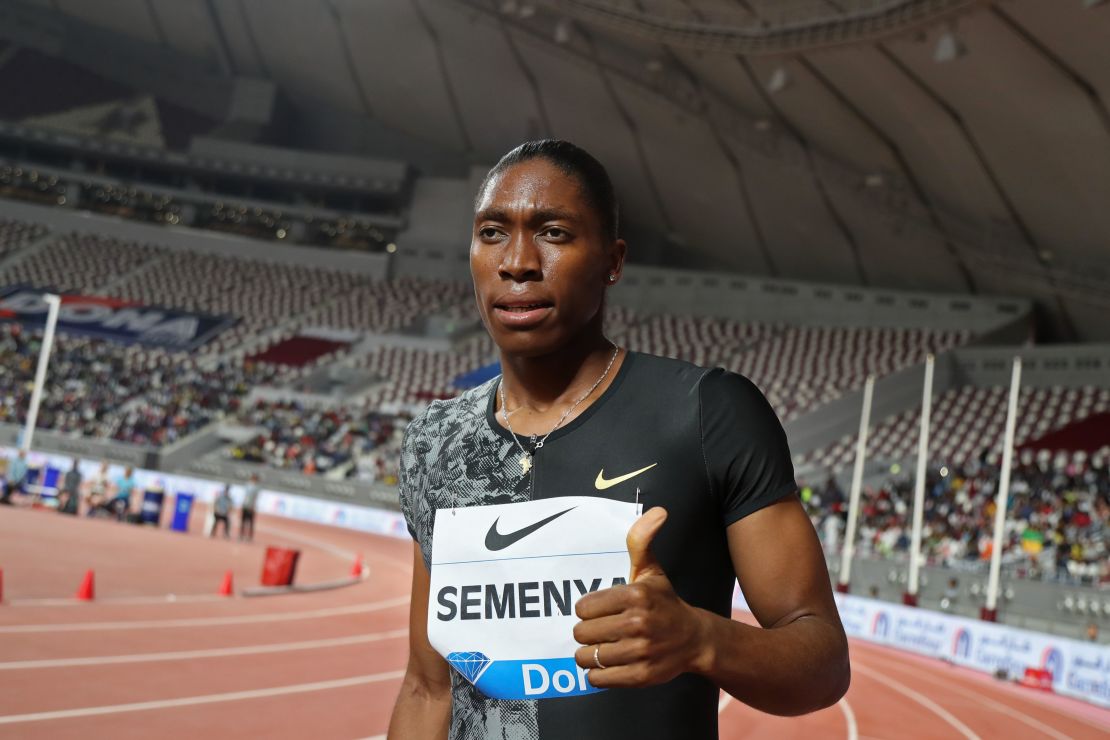Runner Caster Semenya will be allowed to compete without having to take testosterone-reducing medication after a Swiss court ordered the International Association of Athletics Federations to suspend implementation of new regulations while Semenya’s appeal is pending.
The court ruled that the two-time Olympic 800-meter champion, the dominant force in women’s middle distance running, is clear to race in events of all distances, according to a news release.
Semenya reacted with a Tweet saying “Born a winner,” and an image with the quote: “Be the change that you wish to see in the world.”
Last month the IAAF – athletics’ governing body – adopted a controversial policy which required athletes with a difference in sex development (DSD) to take medication to reduce their blood testosterone levels, if they wanted to compete internationally at middle-distance events.
“I am thankful to the Swiss judges for this decision,” Semenya, who is hyperandrogenous – meaning she has elevated levels of testosterone – said in a statement.
“I hope that following my appeal I will once again be able to run free.”
READ: Semenya’s fate isn’t about running, it’s about human rights

Semenya, 28, took her case to the Federal Supreme Court of Switzerland after an appeal was rejected by the Court of Arbitration for Sport (CAS) in May.
In its ruling last month CAS announced that its three-person panel had rejected Semenya’s challenge “by majority” but did add that it had “serious concerns as to the future practical application” of the new rules.
Under the IAAF’s policy all DSD athletes, who are usually born with testes, would have to reduce their blood testosterone to a specific level for a continuous period of at least six months – and maintain that for the rest of their athletic career in order to compete in events from 400 meters to a mile.
Semenya’s legal representative, Dorothee Schramm, said in a statement: “The Swiss Supreme Court has granted welcome temporary protection to Caster Semenya. This is an important case that will have fundamental implications for the human rights of female athletes.”
The IAAF told CNN Sport Monday that it had no comment to make as it had not received any information from the Swiss court.
Athletics’ governing body believes DSD athletes have a competitive advantage – findings that were disputed by Semenya and her legal team.
South Africa’s Minister of Sport, Arts and Culture, Nathi Mthethwa, supported the decision on Twitter.
“We welcome the decision taken by the Swiss Federal Supreme Court to suspend the implementation of the IAAF’s regulations for athletes with “differences of sex development” pending @Caster800m #CasterSemenya’s appeal. We will never rest until justice is served!”



